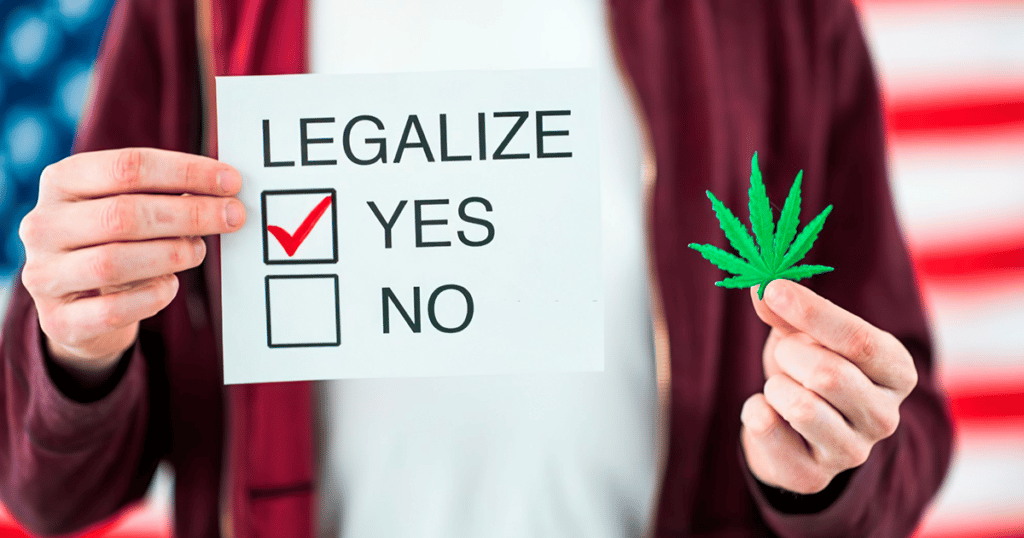In November this year, Californian cities and counties could establish new recreational marijuana markets through new cannabis ballot measures. This could create up to 150 retail licenses and endless business opportunities for cannabis and ancillary companies.
At least 28 municipalities within California are waiting to include some new cannabis ballot initiatives this fall, being the largest cohort since California began regulating adult use in 2018.
Dirk Voss, director of compliance and government for Zen Cannabis, said that the upcoming ballot measures are encouraging. Zen Cannabis sells THC and CBD-infused products in California and other states.
He continued, “If the upcoming measures are passed, California will be able to open up additional operational dispensaries, depending if those cities move forward and license new dispensaries at the local level.
Most ballot referendums ask Californian voters to prohibit or approve retail marijuana businesses.
If the ballots are approved, local municipalities such as Huntington Beach, Healdsburg, and Avenal will address local prohibition via marijuana business tax measures, which should create a way for these municipalities to regulate the local markets.
The ballots will potentially help minimize gaps in consumer accessibility, as most cities and counties within California still have active commercial marijuana operations bans.
“This could lead to 125 to 1150 new retail licenses, which is a significant amount of new and potential business,” states Hirsh Jain, founder of the Los Angeles-based cannabis consultancy Ananda Strategy.
Going To Ballot
The ballot initiatives are mainly centered near densely populated centers in Southern California, like Los Angeles and San Diego.
Historically conservative counties such as Tehama County will decide if they will legalize recreational marijuana.
If the cannabis tax ballot passes, California’s heavily populated counties can expect;
- San Diego County could License 20-40 retailers
- Los Angeles could approve up to 25 stores
- Sacramento could license 20 – 40 retailers
The cannabis tax ballot could add additional purchasing options for more than 15 million residents within the three counties.
CEO of Catalyst Cannabis Co., Elliot Lewis, wants to change this. Catalyst Cannabis Co. is based in Long Beach and operates 13 outlets within the L.A market. Lewis has bankrolled more than half a million dollars with other industry partners to help fund signature and ballot campaigns in several cities within South Bay.
Lewis stated that “When cities see us circulating something, they will take us seriously. We don’t need to take everyone to the ballot. That being said, we want to peacefully negotiate with cities on some resolution.”

A Case Study Of Ballot Initiatives
Ballot initiatives have caused some Californian cities to create and establish marijuana ordinances before proposing the question to voters, allowing the cities more control over the issue rather than relying on the graces of cannabis advocates and invested business interests.
Special-interest groups often write both ballot measures and policy.
Retail expansion advocates use the East Los Angeles suburb of El Monte as a successful template.
In March 2022, a vote-led ballot initiative designed to allow marijuana businesses was set to appear. However, the City Council submitted its marijuana tax referendum, which voters then approved.
In the past year, three marijuana stores have opened in El Monte, and the suburb has exceeded its marijuana tax revenue projections by more than one hundred thousand dollars.
Three retailers are expected to open shop in the next six months.
“By this time next year, El Monte’s cannabis industry should create more than $50 million in annual sales, which is amazing for the 64th-largest city within California,” Jain comments.
Slow-Moving Gains
The promise of widespread retail expansion after the midterm elections has many gains and ancillary benefits that unfortunately won’t be realized for a few years after the ballot passes in California. This is due to the state’s entry costs, licensing requirements, and other regulatory requirements.
Costa Mesa is a prime example of this the delay counties can face. In November 2020, voters in Orange Country city approved cannabis retail tax measures. However, nearly two years later, a store hasn’t opened.
Orange County planning commission approved conditional-use permits for two retail storefronts in June.
Speaking on the topic, Jain stated that “It often takes years for stores to come online. Unfortunately, the local initiatives that pass in November 2022, won’t have an immediate impact, but counties will feel their impact in 2024.”
“It is a slow unfolding process across the state, but it starts to add up,” Jain concluded.
Voters who like to find out more information about the upcoming ballot can find out here.

Enjoyed that first hit? Come chill with us every week at the Friday Sesh for a freshly packed bowl of the week’s best cannabis news!
- Delaware’s Recreational Cannabis Market Finally Set to Launch After Years of Challenges
- Excise Tax Increase to 19% and Its Impact on California Retailers
- Nebraska’s Governor Approves Emergency Medical Cannabis Regulations
- We Must Advocate for Fair and Accurate Marijuana Impairment Testing Policies
- The Global Roots of Plant Medicine: Why Cannabis Has Always Been Part of the Plan
- Hawaii’s HB 302 Becomes Law After Governor’s Unexpected Reversal














